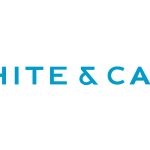Peter Jerome, a quantum expert at Ankura Consulting, discusses the key aspects.
Could you please give an overview of what is understood by ‘clean’ and ‘dirty’ experts and the role they play in litigation and arbitration?
The term ‘clean’ expert refers to an expert witness who provides evidence in the form of their impartial opinion on an issue in dispute where they have particular expertise or special knowledge (e.g. technical issue, quantum, delay). A clean expert’s primary duty is to assist the court or arbitration tribunal on matters relevant to their expertise.
The term ‘dirty’ expert refers to an adviser engaged by a party to a dispute to provide technical advice on the strategy and preparation of its case. The dirty expert need not be impartial, and their duty is to act in the interest of their client.
The dirty expert’s role may encompass a wide scope of services:
- Technical advice on claims and case strategy, working together with a party’s lawyers.
- Advice on identifying and compiling the relevant evidential records that need to be kept to support a claim.
- Assisting in the drafting of technical aspects of the pleadings.
- Preparing the technical aspects of claim narratives, analysis and calculations to a litigation or arbitration standard to support and demonstrate a party’s claim.
- Objective assessments on the merits of the case.
- Periodic auditing of costs or monitoring of progress and delay on disputes where the project is still is in progress.
- Attending and assisting in negotiations to settle a dispute and other informal dispute resolution processes.
Essentially, the dirty expert can form a bridge between the client and lawyers on legal and technical aspects of the dispute.
The dirty expert need not be impartial, and their duty is to act in the interest of their client.
What sorts of disputes warrant the use of a dirty expert?
In my experience, dirty experts are normally engaged on large and complex construction disputes. Over the last 15 years, Australia has experienced many huge disputes on oil and gas, power and process plant projects, where it has not been uncommon for the amounts in dispute to run into the hundreds of millions or even billions. Such disputes have invariably involved complex claims for delay or disruption or massive cost overruns on messy termination cases.
Delay and disruption claims arising from a plethora of events are notoriously difficult to demonstrate. Preparation of such claims often involves complex analysis and methodologies which require specialist expertise often beyond a party’s own in-house capabilities. As result, delay and disruption claims are sometimes so poorly prepared by the in-house team that the ‘clean’ expert is left to make the client’s claim for them. Hence, ‘dirty’ expertise is needed to prepare credible delay and disruption analyses to demonstrate the claim, together with sufficient evidence of causation.
In my experience of terminated project disputes, the key is to appoint dirty experts as soon as possible so they can advise on the most efficient way to complete the project while mitigating loss, as well as keeping the right records to support the inevitable additional cost and demonstrate reasonableness.
What are the inherent advantages of engaging a dirty expert in addition to a clean expert as a dispute strategy?
There are several advantages in engaging a dirty expert in the right circumstances:
- A dirty expert is not hindered by the strict ethical duties of a clean expert, because they are engaged to act in the interest of their client and will be involved in the formulation of the case strategy.
- They will also have the expertise to provide technical advice to enable the legal team to prepare the best case from a technical standpoint.
- The client’s in-house team may not have the time or expertise to support complex or large disputes.
- Time and money may be saved on the identification and compilation of relevant evidence.
- Again, time and money may be saved on the expert evidence, if the dirty expert’s quantum or delay or technical analyses can be supported by the clean expert.
- A dirty expert’s early advice on disputes where projects are still in progress can help the client mitigate costs and keep the right records and evidence.
- The right clean expert with the necessary specialist expertise may only become apparent after the formulation of the case.
Rules in Australia on privilege relating to communications between expert witnesses and their clients and lawyers, as well as the risk of such communications being subject to disclosure, have been extensively discussed in the legal media.
Delay and disruption claims arising from a plethora of events are notoriously difficult to demonstrate.
As any experienced expert involved in Australian disputes would attest, lawyers are particularly cautious when it comes to communications with retained experts to avoid waiver of privilege. In my experience, lawyers have sometimes operated on the assumption that all communications between the expert and lawyer could be subject to disclosure, to a point of forbidding any communications of advice or draft reports prior to the issue of the final expert report, permitting oral communications only.
Privilege issues may occur where a clean expert provides strategic advice at an early stage in the dispute. For example, if a clean expert provides an impartial opinion to a client on mitigation measures that should be taken to control costs, such advice may be subject to disclosure. If the client does not actually follow such advice, the clean expert may be put in a difficult position when opining on whether costs are reasonable in their expert report. There may also be situations where a clean expert’s early involvement in the formulation of the claim could be seen to taint the impartiality of their evidence.
However, the appointment of a dirty expert may avoid such issues since, as I understand it, the dirty expert could be considered part of the legal team advocating for the client and it may be arguable that communications between the lawyers and the dirty expert are therefore subject to privilege.
Are there any significant drawbacks to this strategy?
I suppose the most significant drawback of appointing two experts is the additional expense. However, it seems to me that if the dispute is significant, such fees are outweighed by the advantages mentioned earlier.
Another drawback is that in Australia it may be considered as too much of a risk for an expert carrying out a ‘dirty’ role at an early stage in a dispute to subsequently act as the clean expert at a later stage due to the inherent conflict in duties between these roles.
Can you tell us about your own experiences acting as both a ‘dirty’ and a ‘clean’ expert?
Ankura provides expert quantum and delay services for both clean and dirty expert roles. I have been involved in quantum expert work for around 20 years after working as a quantity surveyor in professional practice, so I have had my fair share of good and bad experiences from both perspectives.
Privilege issues may occur where a clean expert provides strategic advice at an early stage in the dispute.
On one major rail project, our claims support engagement was carried over to the dirty expert role when our client, the main contractor, commenced arbitration proceedings in respect of significant disputed claims for time and money. During the course of the project, we had prepared comprehensive claim documents which had been strategised and coordinated with our client’s lawyers, who had also been brought in at an early stage. Our client’s case had strong legal merits and the claims had been well put together with supporting quantum and delay analysis and documentary evidence. As a result, the parties settled the dispute at a significant sum before the substantive involvement of the clean expert.
One of the key roles of a dirty expert is to provide advice on how the claims should be prepared to litigation or arbitration standards together with supporting evidence required to prove the claims. However, the dirty expert also needs to anticipate what a clean expert will need in terms of how evidence is analysed and presented in the claims so that their assessment will substantially support the client’s case.
I have been involved in several disputes as a clean expert where the appointed dirty expert was not experienced in arbitration proceedings and their claim preparation was evidentially insufficient. In one such oil and gas dispute, a quantity surveying dirty expert’s services were ended prematurely because they did not have the expertise to deal with such a massive and complex claim. They were simply not providing the client with value for money.
In another oil and gas dispute, the opposing party’s dirty expert had made comments in script on the clean expert’s draft report. This was subsequently disclosed and showed that the clean expert had adopted these comments word for word in his final report. As a result the case settled immediately, which was a shame, because cross-examination would have been fun!
From these experiences, can you offer any final words for parties interested in adopting this strategy?
Care should be taken in selecting the right dirty expert. The term ‘dirty’ expert is not a statement of the expert’s quality (or moral standing)! It just means that the dirty expert is not necessarily impartial, and their duty is to their client. However, I would say that such duty requires the dirty expert to provide objective and realistic advice to their client on the technical merits of the case, before putting the ‘best foot forward’.
[ymal]
The dirty expert should be an experienced expert witness in their own right, thereby understanding the requirements of litigation and arbitration evidence. In fact, for a variety of reasons, leading experts are often engaged to perform the dirty expert’s role.
Hence, a dirty expert should be of no less repute and capability than the clean expert – or, dare I say it, expense. The focus should therefore be to engage a dirty expert and clean expert with the specialist expertise most relevant to technical matters in dispute.
Peter Jerome,
BSc, MSc, MRICS, MCIArb
Quantum Expert
Ankara Consulting (Australia) Pty Ltd
Level 27, 101 Collins St, Melbourne VIC 3143, Australia
Tel: +61 3 8680 2496
Peter Jerome is a a Chartered Quantity Surveyor with over 25 years of experience in the Asia-Pacific region, specialising in the expert assessment of disputed claims in the infrastructure, rail, building, power and oil and gas industries. Based in Melbourne, he acts as quantum expert opining on the valuation of variations and assessment of damages, direct loss and/or expense in arbitration and litigation.
Ankura is a global consulting firm providing services in construction disputes and advisory, data and technology, forensics accounting, and financial investigations as well asa turnaround and restructuring.








